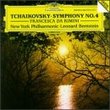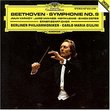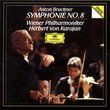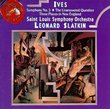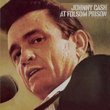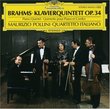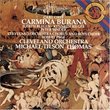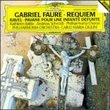| All Artists: Gundula Janowitz, Waldemar Kmentt, Hilde Rossel-Majdan Title: Ludwig van Beethoven: 9 Symphonien Members Wishing: 0 Total Copies: 1 Label: Deutsche Grammophon 1963 / 2007 Release Date: 6/5/2007 Album Type: Original recording reissued Genre: Classical Styles: Historical Periods, Classical (c.1770-1830), Modern, 20th, & 21st Century, Symphonies Number of Discs: 5 SwapaCD Credits: 5 UPC: 028942903623 |
Search - Gundula Janowitz, Waldemar Kmentt, Hilde Rossel-Majdan :: Ludwig van Beethoven: 9 Symphonien
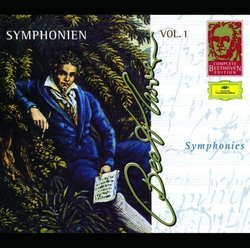 | Gundula Janowitz, Waldemar Kmentt, Hilde Rossel-Majdan Ludwig van Beethoven: 9 Symphonien Genre: Classical
By general consensus, Herbert von Karajan's first (1963) Beethoven cycle for Deutsche Grammophon is the best of the four (!) that he recorded. The Berlin Philharmonic was in top form, and they had not yet made an artisti... more » ![header=[] body=[This CD is available to be requested as disc only.]](/images/attributes/disc.png?v=15401716) ![header=[] body=[This CD is available to be requested with the disc and back insert.]](/images/attributes/disc_back.png?v=15401716) ![header=[] body=[This CD is unavailable to be requested with the disc and front insert at this time.]](/images/attributes/greyed_disc_front.png?v=15401716) ![header=[] body=[This CD is unavailable to be requested with the disc, front and back inserts at this time.]](/images/attributes/greyed_disc_front_back.png?v=15401716) |
Larger Image |
CD DetailsSynopsis
Amazon.com essential recording By general consensus, Herbert von Karajan's first (1963) Beethoven cycle for Deutsche Grammophon is the best of the four (!) that he recorded. The Berlin Philharmonic was in top form, and they had not yet made an artistic fetish out of the bland smoothness that typified the conductor's later recordings of this music (and just about everything else). Karajan's squeaky clean, emotionally cool Beethoven will always be something of an acquired taste, but this set makes the best possible case for it. --David Hurwitz Similar CDs
Similarly Requested CDs
|
CD ReviewsThe best Beethoven symphony set out there so far Tina Morris | Rockville, MD USA | 12/12/2000 (5 out of 5 stars) "Over his 35year tenure with the Berlin Philharmonic Herbert von Karajan recorded 4 complete Beethoven symphony cycles. This 1963 one is his masterpiece. Just as there are people who like either the even- or the odd-numbered symphonies better, this set will not please everybody in every single aspect, but it is as good as anybody can get on an artistic proposition of this format. The cycle conveys a very clear artistic vision. Probably better than anything else Karajan ever recorded it epitomizes the unique sound he was able to create with 'his' Philhramonic. This makes the cycle very homogenous, all symphonies have the same overall very high quality. In contrast to some of his very early Viennese recordings, his pace is quicker, and as always he creates a wonderful transparency of sound. My personal favorites are #7 and #9, the latter is done wonderfully both in terms of soloists and choir. An extremely moving experience. The sound quality of this '63 recording is very good, but with Deutsche Grammophon one is generally never disappointed in that regard anyway." Probably the best overall cycle available Christopher Smith | Atlanta, Georgia | 10/19/2000 (5 out of 5 stars) "I agree with the Amazon reviewer that, of all Karajan's Beethoven traversals, this one is the best, and I also believe it serves as a great introduction to Beethoven's symphonies as a whole. Like any interpretation of such well-loved works, there will always be a few points of disagreement, but overall Karajan's vision prevails. And at this price, one can certainly afford to augment this collection here and there with another conductor's interpretation. Every symphony here bears the trademark Van Karajan clarity and precision, but unlike his later recordings of Beethoven, there is also plenty of fire and passion. I really like the tempos he chooses for the fifth and the seventh (my favorite). Ever since I bought Karajan's 1963 interpretations of these two a number of years ago, I've never really liked any other conductor's treatment of the finales of these two symphonies, Karajan's seem that perfectly done to me. The first, second, fourth, and eighth are all excellent interpretations, and they will remind any listener that, although they are not considered among Beethoven's colossal achievements, perhaps they should be (especially the fourth). While he might have put a bit more bounce into the eighth, which is without doubt Beethoven's jauntiest symphony, I find that's just a minor quibble on my part. With the third, sixth and ninth, you won't be disappointed by any means, since none of these interpretations is anything but excellent. But after you listen to them for a while and decide that these symphonies are essential to living a long and happy life, you might want to cast around for alternatives to complement Karajan. It's generally acknowledged that Karajan's 1977 recording of the ninth is his best, and that it is among the greatest interpretations of all time. It's also available on a single disk. For the third, Otto Klemperer, hands down. After Karajan heard Klemperer conduct the third in the 1950's, he visited Klemperer backstage to congratulate him and said that he hoped he would live long enough to one day conduct the slow movement of this symphony as well as Klemperer had done it. High praise indeed. For the sixth, either Karl Bohm or Klemperer again. That said, I think any lover of Beethoven, or anyone just starting out on getting together a Beethoven collection, should have this set. And it's rare to find such a generous price attached to such a formidable collection." There are 3 versions of this 1963 set that differ in sound q J. West | Flower Mound, TX United States | 05/20/2006 (5 out of 5 stars) "This 1963 recording has been remastered twice. (It's been "reissued" a zillion times but I think it's only been "remastered" 2 times.) The version you should get depends on the amount of money you want to spend and the level of sound fidelity you're looking for.
-- ASIN # B000001GBQ: this item you're looking at DG429036; the least expensive version (also same as import package ASIN # B000056OBA) -- ASIN # B000001GZ4: 1997 remaster DG453701 (done as part of the special 87-disc 20-volume Beethoven Complete Edition). This version is about $25 more and also has a nice color book with history and photos. Used "Original-ImageBit-Processing" technology. -- ASIN # B0000C03AH: 2003 remaster to SACD DG474600. This version at a hundred+ bucks is 4 times the cost of the basic set. (And no doubt in the future there will be another remaster using another whizbang technology like "holographic projection" sound.) I recommend the 1997 remaster (B000001GZ4). It has the best value combination of price and sound quality. " |

 Track Listings (8) - Disc #1
Track Listings (8) - Disc #1